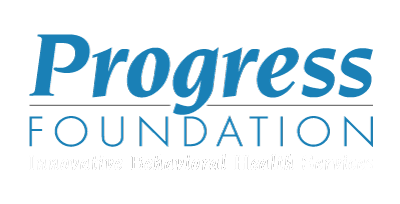Our Programs
The work Progress does takes place within the context of residential programs, where people cook for one another, share their experiences, and learn new coping skills. None of this would be possible without the remarkable settings provided by a collection of safe, structured, social rehabilitation residences staffed by highly trained counselors. Each of these programs is tailored to the communities they serve, each is unique, and nearly all are found in neighborhoods, rather than commercial districts or areas specifically set aside for social services agencies.
Crisis Residential Treatment Programs
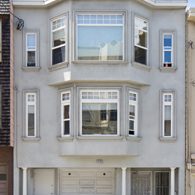
Avenues, San Francisco
Avenues is an acute diversion unit located in San Francisco’s Sunset area. Its purpose is to provide an alternative to hospitalization for single adults. A handicap-accessible program, it has seven bedrooms, a large kitchen, and ample community space to encourage social interaction and reduce isolation. Average length of stay for residents is two weeks. In all ADUs, staff work with residents to connect them to services in the area.
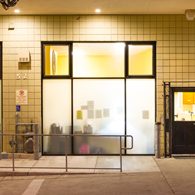
Dore Clinic & Dore House, San Francisco
The Dore Urgent Care Clinic is designed to offer clinical intervention for an individual who is experiencing an escalating psychiatric crisis and who requires rapid engagement, assessment, and intervention in order to prevent further deterioration into an acute crisis or grave disability. Based on the principles of social rehabilitation, it is a voluntary alternative to Psychiatric Emergency Services at San Francisco General Hospital.
Founded alongside Dore Clinic in 2008, Dore House is a social rehabilitation-based acute diversion unit providing a 14-bed intensive crisis residential treatment program with stays of up to two weeks possible for clients in need. Dore is handicap-accessible and ideally situated to address the needs of residents who are experiencing mental health crises with some medical needs.
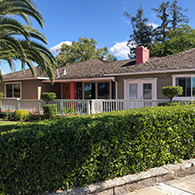
Harstad House, Santa Rosa
Harstad House, named in honor of Progress Foundation’s late Chief Financial Officer, James Harstad, was opened in 2016. Harstad House is our second crisis residential program in Santa Rosa, centrally located in Sonoma County. Similar to Progress Sonoma, Harstad House is a 10 bed facility for ambulatory adults experiencing a psychiatric crisis, with an average length of stay being 12 days. All referrals to Harstad House are initiated through Sonoma County Behavioral Health.
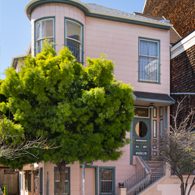
La Posada, San Francisco
Progress Foundation developed the first acute diversion unit, La Posada, in 1978. These programs are designed to divert individuals who would otherwise be involuntarily hospitalized to community-based acute alternatives to avoid unnecessary institutionalization. La Posada is a 10 bed psychiatric crisis residential treatment program. It emphasizes service to the Spanish-speaking community with bi-lingual Spanish-speaking staff on duty 24 hours a day. It is located in San Francisco’s Mission district.
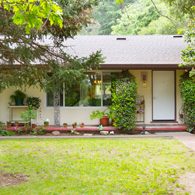
Progress Place, Napa
Established in 1982, Progress Place is an 8-bed psychiatric crisis residential treatment program. This program is able to work with all adult and young adult age groups including Transitional Youth (TY), who are 16 and 17 and with persons over the age of 60. It is located in the City of Napa in Napa County. This is a two-week program for residents needing stabilization after crisis.
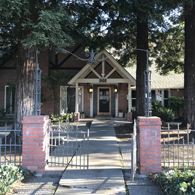
Progress Sonoma, Santa Rosa
Progress Sonoma is a 10-bed crisis residential facility providing services to an acute population of adults seeking support on a voluntary basis. All referrals are received from Sonoma County Behavioral Health with the intent of keeping folks out of hospital settings and in their community for treatment. At Progress Sonoma, both safety and individualized treatment are prioritized to help people meet their short-term goals, reintegrate back into their community, and discharge to a lower level of care. The program is open all year long with a qualified team of counselors who provide services 24 hours per day. Individuals receiving crisis residential services have access to the support they need to manage their immediate behavioral health obstacles in about 1 to 3 weeks. One-to-one counseling, crisis intervention, skill-building, and twice daily therapeutic groups are part of the program structure people engage with to support in their path to recovery and wellness.
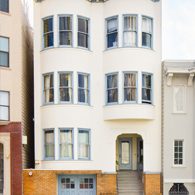
Shrader House, San Francisco
Shrader is located in the Haight-Ashbury district, but serves residents from throughout the county. It offers highly structured, 24-hour psychiatric residential treatment for clients ages 18 and older who require intensive treatment during psychiatric crises. Established in 1973, Shrader, like other acute diversion units, is able to serve clients with co-occurring mental health and substance abuse treatment needs. All admissions are voluntary.
Transitional Residential Treatment Programs
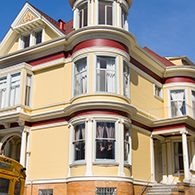
Ashbury, San Francisco
In June 1995, Progress Foundation opened Ashbury House, a residential treatment program for mentally disabled and dually diagnosed mothers and their children. This program is the first licensed treatment setting in California that allows families to remain intact while the mother receives critically needed rehabilitation and treatment services. Mothers who would otherwise be forced to place their children in foster care in order to receive services can choose Ashbury House, a comprehensive family-centered treatment program providing mental health and chemical dependency treatment, parenting education, health services, vocational assistance, and supportive aftercare services.
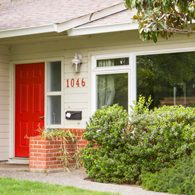
Bella House, Napa
Established in 2006, Bella is a twelve-bed psychiatric transitional residential program in the city of Napa. This program has an in-house structured treatment program, and over the length of their stay clients are expected to develop a planned schedule of activities and services outside the house during the day, in combination with groups provided in-house. Clients who have not yet established their schedule work on individual treatment plans and activities of daily living during the day. The maximum length of stay is one year.
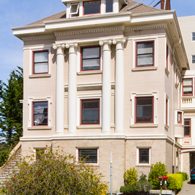
Clay Street House, San Francisco
Established in 1996, Clay is specifically designed for individuals leaving long-term institutionalization who need the support of a transitional program before moving on to more independent living. Clients living in institutional settings are often allowed to exercise very little power to make decisions about their lives and have few opportunities to learn and use life skills to increase their independence. Institutions have historically been a place to warehouse people, not a tool to encourage recovery and rehabilitation. Clay is a year-long program where clients can unlearn institutional behaviors while building their skills and support network.
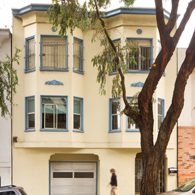
Cortland House, San Francisco
Cortland House is a transitional residential treatment program located in San Francisco’s Bernal Heights neighborhood which has been provided by the agency under a contract with the City and County since 1982. Originally developed as an acute diversion unit, Cortland House was transformed to become a transitional residential treatment program in 2008 to address a systemic need. Length of stay can be up to 90 days, during which residents participate in structured day treatment and 24-hour social rehabilitation treatment.
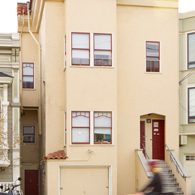
La Amistad, San Francisco
La Amistad is a transitional residential treatment program established in 1978. La Amistad emphasizes service to the Spanish-speaking community, with bi-cultural, bi-lingual Spanish-speaking staff available. The program offers day treatment based on client-led treatment plans developed in collaboration with staff. Goals will vary according to resident needs, but each client develops her own unique path to independence after treatment. Maximum length of stay is three months. La Amistad is located in San Francisco’s Mission district.
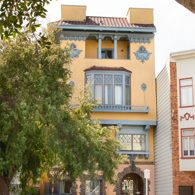
Loso House, San Francisco
Named after longtime Progress supporter and San Francisco public health advocate Dorine Loso, this transitional residential program was established in 2007. Like Clay and Parker Hill, its program is designed primarily for clients returning from often long stays locked in institutions or other long term care settings. The programs offers comprehensive in-house day treatment programs for the residents of the program. The maximum length of stay for the Haight-Ashbury program is one year.
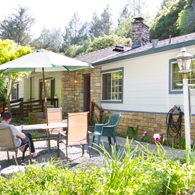
Parker Hill Place, Santa Rosa
Parker Hill is a twelve-bed intensive social rehabilitation-transitional residential program for Sonoma County adult residents who have serious and persistent mental health disorders and are able to actively participate in their process of recovery. The house is a voluntary program which serves residents transitioning out of long term care facilities or those who would otherwise be placed in institutional settings. Its staff work collaboratively with the resident and community resources to develop a plan for transitioning to community living.
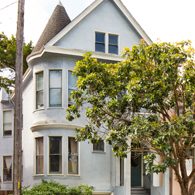
Progress House, San Francisco
Progress House is a 10 bed psychiatric transitional residential treatment program established in 1969. Progress House offers Seeking Safety groups and an expressive arts program as part of its curriculum, in addition to the structured day treatment offered by all residential transitional programs. The target length of stay is three months, during which time staff work with the client to develop plan to live in the community independently.
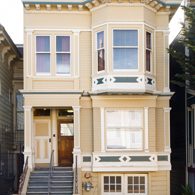
Seniors Program, San Francisco
The Seniors program includes Rypins House, a 6-bed transitional residential treatment program located in San Francisco’s Mission District, Carroll House, a 6-bed residential treatment located in Bernal Heights and Rypins House Day Treatment, a day treatment program for Seniors Program clients and older adult consumers from the community. Rypins House has been provided by the agency under a contract with the City and County since 1980 and Carroll House since 1979. This program provides services to adults over age 60. This transitional residential treatment program for seniors is the only rehabilitation and recovery-based 24-hour alternative to institutional treatment, or jail, that is designed to meet the needs of behavioral health clients over age 60 in San Francisco.
